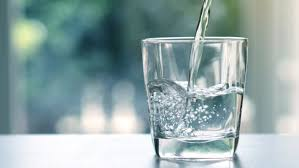The Connection Between Hydration and Health: Why Water Matters
The Connection Between Hydration and Health: Why Water Matters
We all know that staying hydrated is important, but many of us underestimate just how crucial water is for our bodies. Dehydration can have a wide range of negative effects, from fatigue to poor concentration to digestive issues. In this blog, let’s explore why hydration is essential and how it contributes to overall health.
Why Water is Essential:
Water is involved in nearly every bodily function, from regulating temperature to supporting digestion to transporting nutrients. Every organ and system in your body relies on water to function properly. Here’s how hydration impacts your health:
Improves Digestion: Water aids in the breakdown of food, helping the body absorb nutrients. It also prevents constipation by keeping the digestive system moving smoothly.
Supports Detoxification: Water helps flush toxins from the body through urine and sweat, ensuring your kidneys, liver, and other organs function efficiently.
-
Boosts Energy Levels: Dehydration can cause fatigue and sluggishness. Staying hydrated ensures your body can generate the energy it needs for daily activities.
Regulates Body Temperature: When you're properly hydrated, your body can maintain a stable temperature, which is crucial for preventing overheating during exercise or hot weather.
How Much Water Should You Drink?
The amount of water you need depends on various factors, including your activity level, climate, and overall health. However, a general rule is to aim for at least eight 8-ounce glasses of water a day, known as the "8x8 rule." You may need more if you exercise regularly, live in a hot climate, or are pregnant or breastfeeding.
Creative Ways to Stay Hydrated:
Drinking enough water doesn’t have to be boring. Here are some fun and refreshing ways to stay hydrated:
-
Infused Water: Add fruits, herbs, or cucumber to your water for a burst of flavor. Try combinations like lemon-mint, strawberry-basil, or cucumber-lime.
Water-Rich Foods: Incorporate more water-rich foods into your diet, such as watermelon, cucumbers, oranges, and celery.
-
Flavored Water or Herbal Teas: If plain water isn’t your favorite, opt for unsweetened flavored water or herbal teas.
Signs of Dehydration:
It’s important to recognize the signs of dehydration, which can include dry mouth, fatigue, dark yellow urine, dizziness, and headaches. If you notice these symptoms, it’s time to drink up!
PLEASE LEAVE A COMMENT BELOW!










Comments
Post a Comment